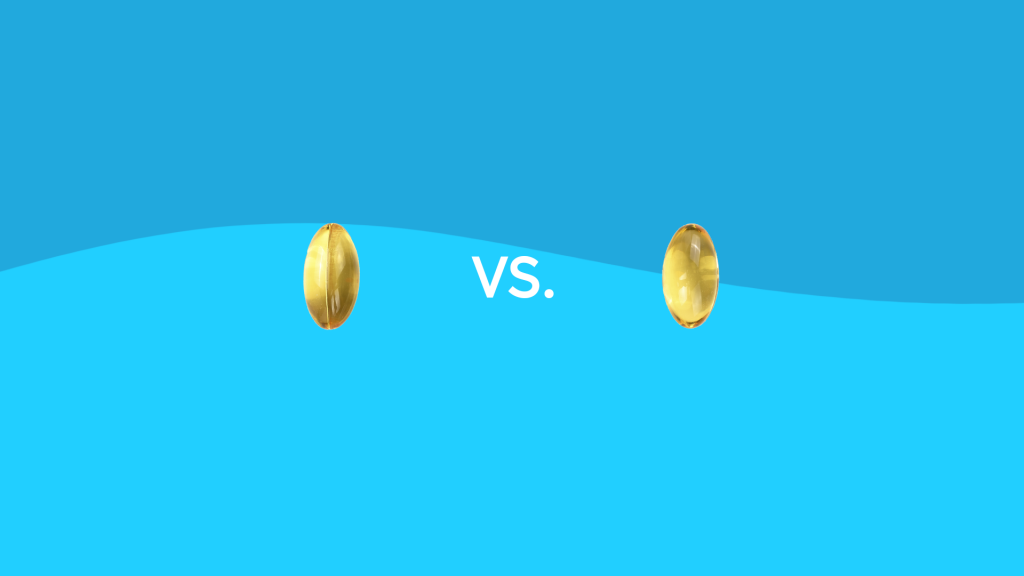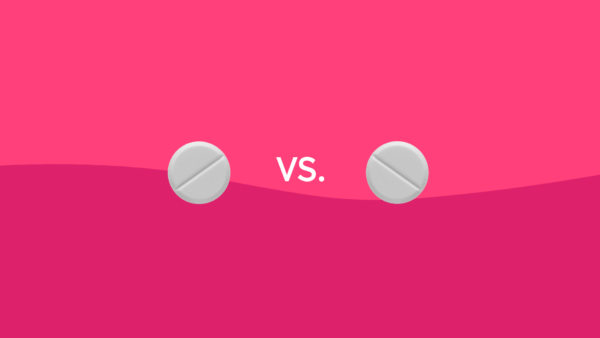Drug overview & main differences | Conditions treated | Efficacy | Insurance coverage and cost comparison | Side effects | Drug interactions | Warnings | FAQ
Amitiza and Linzess are two prescription medications used in the treatment of chronic idiopathic constipation (CIC) and irritable bowel syndrome with constipation (IBS-C). Chronic idiopathic constipation is characterized by a period of six months or longer with three or fewer spontaneous bowel movements per week. Irritable bowel syndrome is a group of different symptoms occurring together including abdominal pain and changes in bowel movements: diarrhea, constipation, or both. Amitiza and Linzess are used specifically in IBS with constipation. We will discuss the similarities and differences between Amitiza and Linzess here.
What are the main differences between Amitiza and Linzess?
Amitiza (lubiprostone) is a prescription drug that treats constipation by increasing intestinal fluid secretion. It is a bicyclic fatty acid and prostaglandin E1 (PGE 1) derivative that activates chloride channels in the intestinal lining. The resulting increase in secretions alters stool consistency and promotes regular bowel movements. Amitiza is available as an oral softgel capsule in strengths of 8 mcg and 24 mcg.
Linzess (linaclotide) is a prescription drug also indicated to treat constipation. It is a guanylate cyclase C (GC-C) agonist that causes an increase in cyclic guanosine monophosphate (cGMP). Action at the GC-C receptor results in an increase in intestinal secretions. This causes an increase in intestinal fluid and increases the motility of intestinal contents through the tract. Increased cGMP levels are also thought to mediate reduced visceral pain in the abdomen common in IBS. Linzess is available as an oral capsule in strengths of 72 mcg, 145 mcg, and 290 mcg.
| Main differences between Amitiza and Linzess | ||
|---|---|---|
| Amitiza | Linzess | |
| Drug class | Bicyclic fatty acid/ PGE 1 derivative/ chloride channel activator | Guanylate cyclase C agonists |
| Brand/generic status | Brand only | Brand only |
| What is the generic name? | Lubiprostone | Linaclotide |
| What form(s) does the drug come in? | Oral softgel capsule | Oral capsule |
| What is the standard dosage? | 24 mcg twice daily | 145 mcg once daily |
| How long is the typical treatment? | Indefinite, long-term | Indefinite, long-term |
| Who typically uses the medication? | Adults | Adults |
Conditions treated by Amitiza and Linzess
Amitiza and Linzess are each indicated in the treatment of chronic idiopathic constipation as well as irritable bowel syndrome with constipation. Amitiza is also approved by the Food and Drug Administration (FDA) in the treatment of constipation caused by opioid pain reliever usage in chronic, non-cancer pain. This is sometimes referred to as OIC, opioid-induced constipation.
Amitiza and Linzess are each only indicated for use in adults, and use in children and adolescents is not approved. Only your doctor can decide if these medications are the right choice for your condition.
| Condition | Amitiza | Linzess |
| Chronic idiopathic constipation | Yes | Yes |
| Irritable bowel syndrome with constipation | Yes | Yes |
| Opiate agonist-induced constipation (chronic, non-cancer pain) | Yes | No |
Is Amitiza or Linzess more effective?
A systematic review of 21 randomized controlled clinical trials compared the active ingredients of Amitiza, Linzess, and other common constipation treatments. Other treatments included in this study were prucalopride, tegaserod, bisacodyl, and polyethylene glycol (PEG). This analysis concluded that all included drugs showed similar efficacy over placebo when evaluating an endpoint of having 3 or more spontaneous bowel movements per week. Bisacodyl, an over-the-counter stimulant laxative, was superior to both Amitiza and Linzess in terms of change in the number of bowel movements per week. Stimulant laxatives may cause electrolyte imbalances and are prone to the development of tolerance over time.
A prescriber may need to consider factors such as adverse events, drug interactions, and compliance with once daily or twice daily dosing when deciding which drug is best for a patient.
Coverage and cost comparison of Amitiza vs. Linzess
Amitiza is typically covered by both commercial and Medicare Part D drug plans, though in some cases it may also require prior approval for coverage. The out-of-pocket price for Amitiza can be as high as $282, but a coupon from SingleCare can lower the price to around $176 for a 30-day supply.
Linzess is typically covered by both commercial and Medicare Part D drug plans, though in some cases it may also require prior approval for coverage. Without any type of coverage, Linzess may cost almost $640. A Linzess coupon from SingleCare will help you save on Linzess, and you could pay as little as $395.
| Amitiza | Linzess | |
| Typically covered by insurance? | Yes, sometimes with prior authorization required | Yes, sometimes with prior authorization required |
| Typically covered by Medicare Part D? | Yes, sometimes with prior authorization required | Yes, sometimes with prior authorization required |
| Quantity | 30, 24 mcg capsules | 30, 145 mcg capsules |
| Typical Medicare copay | Varies depending on plan | Varies depending on plan |
| SingleCare cost | $176–$204 | $395–$470 |
Get the pharmacy discount card
Common side effects of Amitiza vs. Linzess
Amitiza and Linzess have some common adverse events between them, but also some more unique to each drug. Diarrhea is the most common reason for treatment discontinuation for both drugs, and is a common side effect for both drugs.
Amitiza is highly likely to cause nausea, occurring in almost one in every three patients who take the drug. This appears to happen more often if it is taken on an empty stomach. Sometimes this nausea is severe and debilitating, keeping patients from normal daily activities. Patients on Amitiza reported adverse events such as dizziness, fatigue, and chest pain, whereas patients on Linzess did not report these side effects.
This is not intended to be a comprehensive list of adverse effects, please consult your doctor or pharmacist for a complete list.
| Amitiza | Linzess | |||
| Side effect | Applicable? | Frequency | Applicable? | Frequency |
| Nausea | Yes | 29% | Yes | <2% |
| Diarrhea | Yes | 12% | Yes | 16-20% |
| Headache | Yes | 11% | Yes | 4% |
| Abdominal pain | Yes | 8% | Yes | 7% |
| Abdominal distention/ bloating | Yes | 6% | Yes | 2-3% |
| Flatulence | Yes | 6% | Yes | 4-6% |
| Vomiting | Yes | 3% | Yes | <2% |
| Edema | Yes | 3% | No | n/a |
| Abdominal discomfort | Yes | 3% | No | n/a |
| Dizziness | Yes | 3% | No | n/a |
| Chest pain | Yes | 2% | No | n/a |
| Dyspnea | Yes | 2% | No | n/a |
| Dyspepsia | Yes | 2% | Yes | <2% |
| Fatigue | Yes | 2% | No | n/a |
| Dry mouth | Yes | 1% | No | n/a |
Source: Amitiza (DailyMed) Linzess (DailyMed)
Drug interactions of Amitiza vs. Linzess
Amitiza and Linzess should be used with caution in patients on drugs with anticholinergic properties. Anticholinergic drugs may promote constipation and oppose the pharmacologic actions of Amitiza and Linzess.
Patients who are on loop diuretics, such as furosemide (Lasix), should avoid Amitiza as they may be at risk of losing too much potassium (hypokalemia). In these patients, Linzess may be a preferred choice.
This is not a complete list of potential drug interactions. For a complete list, please seek medical advice from your gastroenterology healthcare professional.
| Drug | Drug class | Amitiza | Linzess |
| Atropine Belladonna Benztropine Chlordiazepoxide Dicyclomine Flavoxate Glycopyrrolate Homatropine Hyoscyamine Methscopolamine Oxybutynin Scopolamine |
Anticholinergics | Yes | Yes |
| Bismuth salicylate Loperamide |
Antidiarrheals | No | Yes |
| Bumetanide Furosemide Torsemide |
Loop diuretics | Yes | No |
| Lactulose | Laxative | Yes | No |
| Solifenacin | Antimuscarinic | Yes | No |
| Methadone | Opioid | Yes | No |
Warnings of Amitiza and Linzess
Amitiza may cause severe nausea. The occurrence of nausea may be decreased by taking Amitiza with food.
Amitiza and Linzess should not be given to patients experiencing severe diarrhea as this may cause diarrhea to worsen. If diarrhea starts after you begin treatment, discontinue treatment, and contact your healthcare provider.
Syncope, or dizziness upon standing, as well as hypotension, or low blood pressure, may occur after first beginning Amitiza. Patients should monitor their blood pressure and rise slowly from the sitting position to avoid falls. Notify your doctor of any medical conditions or other drugs you may take which may worsen syncope.
Dyspnea, or a feeling of chest tightness and shortness of breath, may occur with Amitiza. This symptom usually sets in within 30 to 60 minutes of a dose and may last for a couple of hours. If this occurs, you should contact your physician.
Linzess carries a boxed warning and disclaimer about use in pediatric patients due to its ability to cause severe dehydration. More information on this warning may be found at fda.gov.
Frequently asked questions about Amitiza vs. Linzess
What is Amitiza?
Amitiza is a prescription drug used to treat chronic idiopathic constipation and in the treatment of irritable bowel syndrome with constipation. Amitiza is also approved to treat opioid-induced constipation use for chronic, non-cancer pain. It works by increasing intestinal secretions to change the consistency of the stool. It is available as an oral capsule in 8 mcg and 24 mcg strengths.
What is Linzess?
Linzess is a prescription drug indicated in the treatment of chronic idiopathic constipation and irritable bowel syndrome with constipation. It increases intestinal fluid content and transit. It is available in oral capsules in strengths of 72 mcg, 145 mcg, and 290 mcg.
Are Amitiza and Linzess the same?
While Amitiza and Linzess each treat constipation, they are not the same. Amitiza is a bicyclic fatty acid and prostaglandin E1 (PGE 1) derivative, and it is dosed twice daily. Linzess belongs to a class of guanylate cyclase C (GC-C) agonists, and it is dosed once daily.
Is Amitiza or Linzess better?
Amitiza and Linzess have shown similar efficacy in relieving constipation. Prescribers may look at factors such as dosing regimens and adverse events when deciding which medication is best for a patient. Amitiza and Linzess are preferred in chronic constipation because other traditional therapy such as stool softeners (e.g. docusate), osmotic laxatives (e.g. Miralax), or stimulant laxatives (e.g. senna) can cause severe electrolyte imbalances and develop tolerance with long-term use.
Can I use Amitiza or Linzess while pregnant?
Drug-associated risks for use of Amitiza or Linzess have not been determined because there are no adequate, controlled clinical trials to prove their safety. The use of these drugs in pregnancy should be limited to situations where the benefits clearly outweigh the risks.
Can I use Amitiza or Linzess with alcohol?
There are no direct contraindications for taking these drugs and consuming alcohol, however, it is important to be mindful that alcohol may lead to dehydration and diarrhea, as can these drugs, putting patients at risk for severe dehydration.
Does Amitiza cause weight gain?
Amitiza has not been shown to cause weight gain.
How long does it take for Linzess to work?
Constipation relief generally occurs within one to two weeks, with a continued improvement in symptoms happening for up to 12 weeks.
Who should not take Amitiza?
Patients who have a mechanical obstruction in their gastrointestinal (GI) tract should not take Amitiza. Also, patients who are experiencing moderate to severe diarrhea should not take Amitiza. Women who are pregnant or breastfeeding, as well as pediatric patients, should avoid Amitiza.





